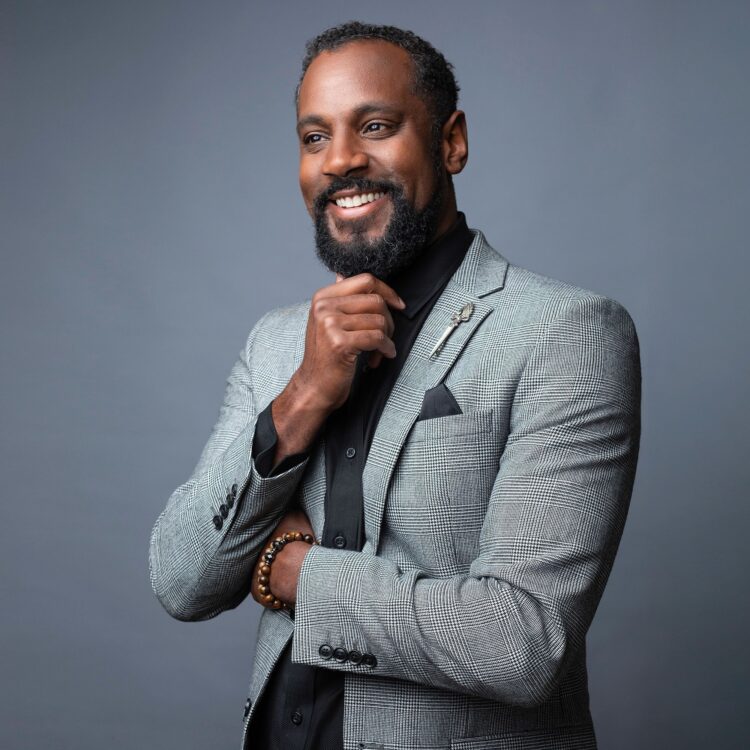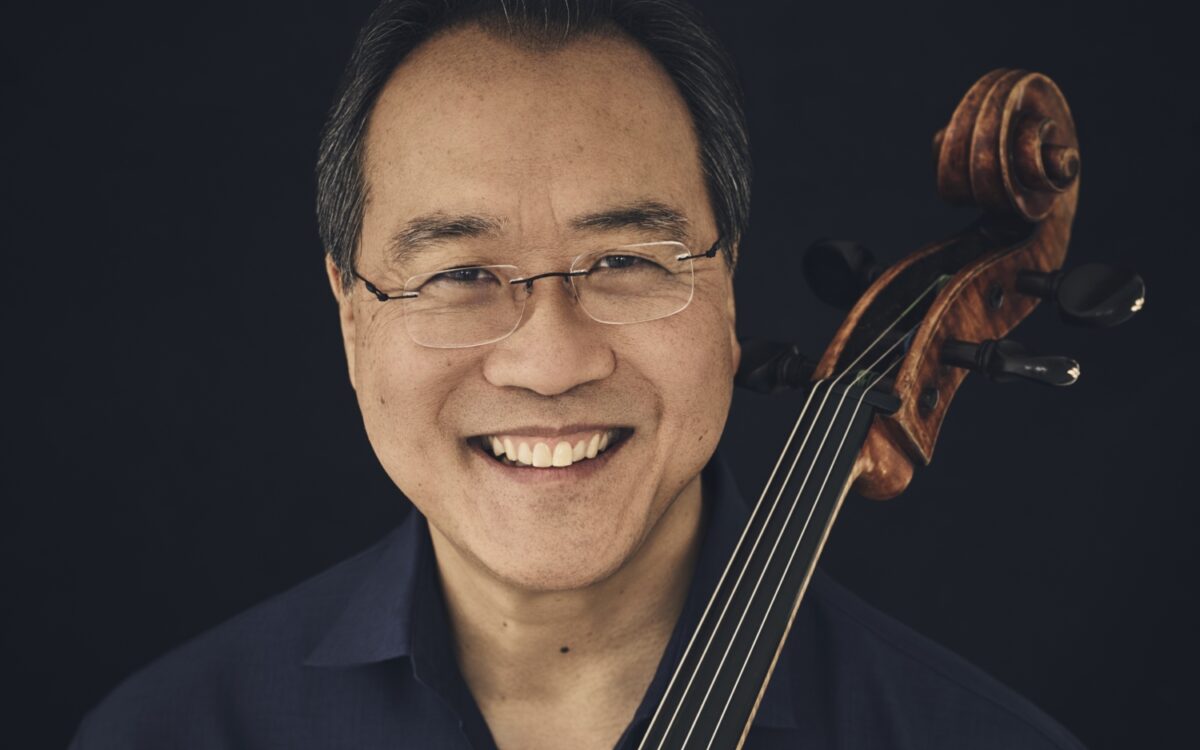Fate Now Conquers (2020)
Composition and premiere: Carlos Simon wrote Fate Now Conquers in 2019 on commission for the Philadelphia Orchestra. The ensemble played the piece in a workshop setting under John Adams’s direction in September 2019, after which Simon made a few tweaks to the score. The original live premiere was to have taken place at the orchestra’s Kimmel Center home in Philadelphia in late March 2020 under Yannick Nézet-Séguin, but that event was a casualty of the pandemic. The Philadelphia Orchestra presented the premiere on their opening Digital Stage Sight/Sound/Symphony program, recorded at the Mann Center for the Performing Arts and released online October 8, 2020. Previous BSO/Tanglewood performances: The Boston Symphony Orchestra and Andris Nelsons performed it during the 2020-2021 BSO NOW video streaming concert season during the pandemic, then played it live at Tanglewood in the Shed on July 11, 2021.
The Boston Symphony Orchestra announced in January 2024 that composer Carlos Simon would be the BSO’s inaugural Composer Chair beginning with the start of the 2024-25 season in September. His Fate Now Conquers, a response to Beethoven’s Symphony No. 7, was the first piece of Simon’s performed by the BSO in spring 2021, followed by Motherboxx Connection at Tanglewood and Symphony Hall in 2022 and the BSO-commissioned Four Black American Dances, premiered under Andris Nelsons’ direction in February 2023. Nelsons and the BSO took that piece on tour to several cities in Europe and repeated it for the opening concert of the 2023-24 season at Symphony Hall; it has been extraordinarily well received wherever it has been played. In 2024-25, the BSO and Nelsons will perform a new commissioned work by Simon celebrating Andris Nelsons’ 10th anniversary season as BSO Music Director as well as the composer’s Wake Up! A Concerto for Orchestra. Earlier this summer, the orchestra performed the expanded, string orchestra version of Warmth from Other Suns in the Koussevitzky Music Shed.
Much of Carlos Simon’s recent practice has involved deep engagement with Black musical traditions through the lens of contemporary classical concert music. In this, he has taken on the mantle of such early 20th-century composers as William Grant Still and Florence Price, who incorporated Black Spirituals, dance music, and the blues into their own sophisticated musical languages. Fully aware of the continuum of history, Simon is a musical activist advocating strongly for musicians of color within and outside the classical sphere. Simon’s own musical influences are myriad: the gospel music and hymns of his father’s church, radio-play pop music, the classical canon, and, significantly, the music of John Williams and other film composers. As a pianist in his father’s church in Atlanta, Black Gospel music was the core of his early musical experience as a child. In high school, he took for granted he would be a classical pianist and composer. His experience as a composer and performer has ranged from concert music to touring with the singer and actress Jennifer Hudson.
Simon is an assistant professor at Georgetown University in Washington, D.C., and remains composer in residence of the Kennedy Center in Washington as he takes on his new BSO role. The breadth of his musical interests and experience makes him an ideal partner for the BSO—an organization that encompasses not only traditional concert music but also the Boston Pops, the educational activities of Youth Concerts, and the wide-ranging activities of Tanglewood.
The commission for Simon’s five-minute orchestral work Fate Now Conquers came about through Simon’s involvement in Gabriela Lena Frank’s innovative Creative Academy of Music. Frank, who was composer in residence with the Philadelphia Orchestra, suggested that some of the works the ensemble had planned to commission from her might be used to provide opportunities for other composers. Simon, Iman Habibi, and Jessica Hunt were asked to compose short orchestral works responding to Beethoven symphonies.
Simon chose the famous Allegretto from Beethoven’s Symphony No. 7 as the starting point for Fate Now Conquers. The harmonies, insistent rhythm, and melodies of Beethoven’s movement are heard only in fragmentary form through the energetic textures of the piece. Simon overlays phrases and measures of different lengths to create, then defeat, the listener’s expectations, reflecting the unpredictability of one’s fortunes. These moment-to-moment feints are subsumed into the work’s propulsive forward motion. Like Beethoven’s Allegretto, Fate Now Conquers also relies on changes in instrumental combinations and colors to amplify its expressive power.
The composer’s comments on Fate Now Conquers appear below.
ROBERT KIRZINGER
Composer and writer Robert Kirzinger is the Boston Symphony Orchestra’s Director of Program Publications.
Carlos Simon on his Fate Now Conquers:
This piece was inspired by a journal entry from Ludwig van Beethoven’s notebook written in 1815:
“Iliad. The Twenty-Second Book
But Fate now conquers; I am hers; and yet not she shall share
In my renown; that life is left to every noble spirit
And that some great deed shall beget that all lives shall inherit.”
Using the beautifully fluid harmonic structure of the 2nd movement of Beethoven’s 7th symphony, I have composed musical gestures that are representative of the unpredictable ways of fate. Jolting stabs, coupled with an agitated groove with every persona. Frenzied arpeggios in the strings that morph into an ambiguous cloud of free-flowing running passages depict the uncertainty of life that hovers over us.
We know that Beethoven strived to overcome many obstacles in his life and documented his aspirations to prevail, despite his ailments. Whatever the specific reason for including this particularly profound passage from the Iliad, in the end, it seems that Beethoven relinquished to fate. Fate now conquers.—Carlos Simon
Note written for performance on August 18, 2024 at 2:30pm.



